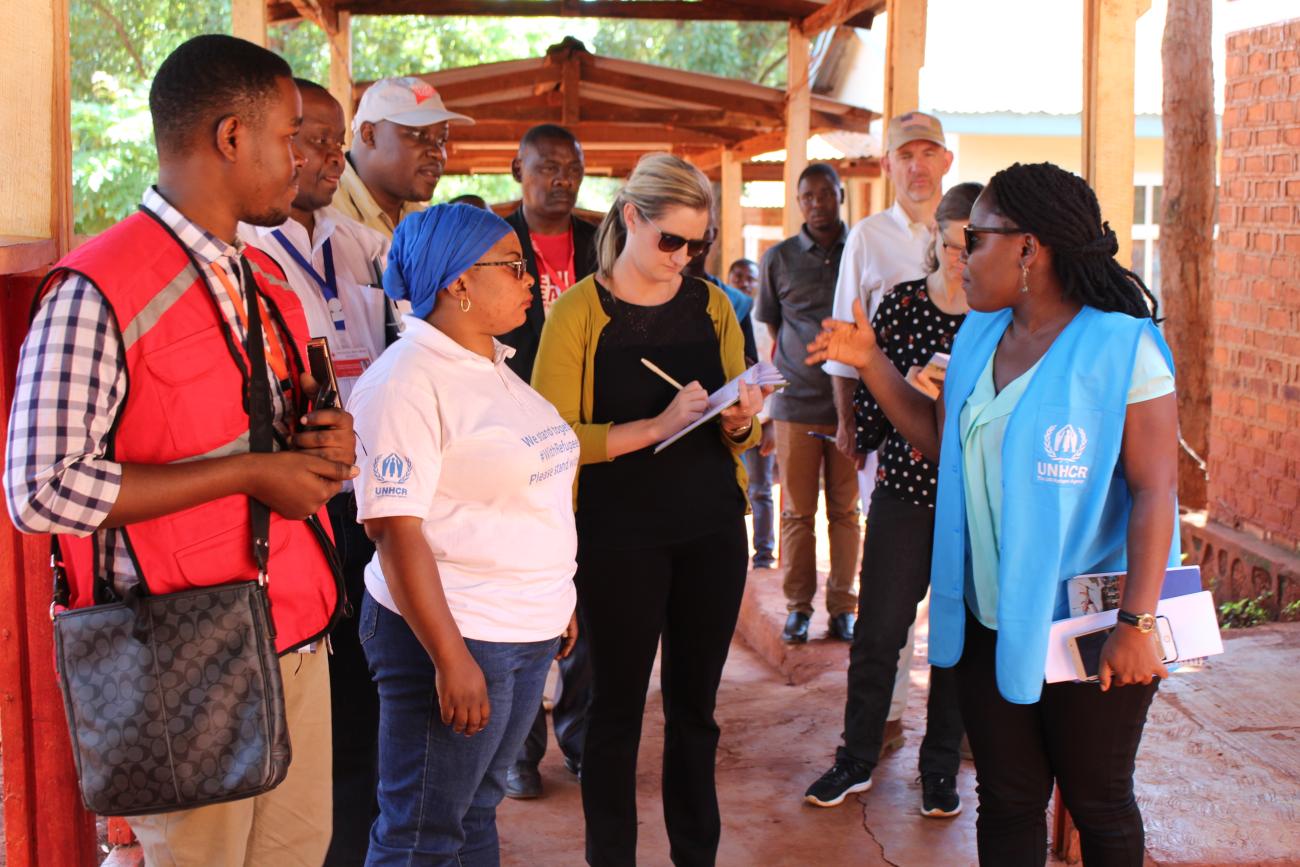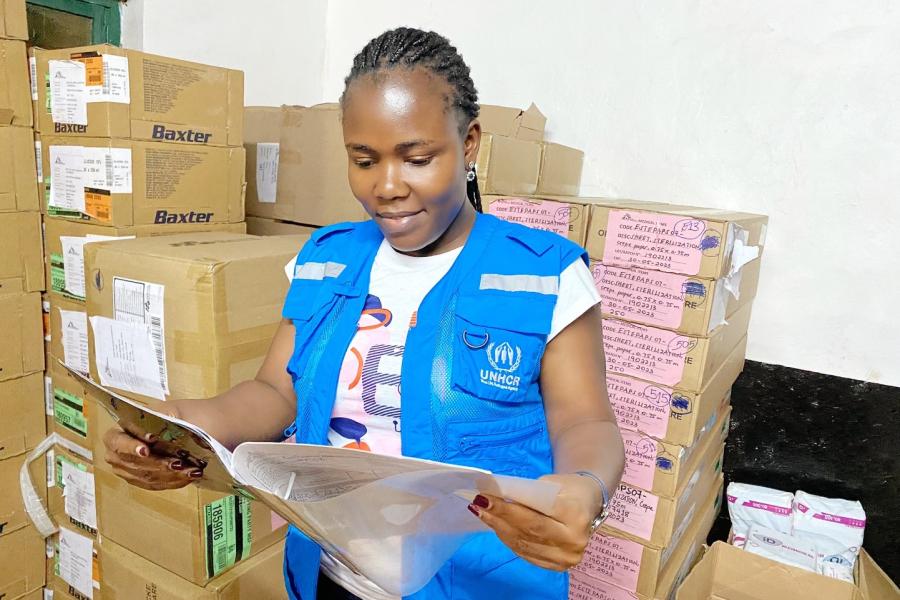Drawing on Ebola lessons to protect Tanzania camps from coronavirus

While COVID-19 has a different transmission and aetiology to Ebola, Miata draws broadly on her experiences fighting Ebola in Liberia...
When an outbreak of Ebola stalked West Africa five years ago, Miata Tubee Johnson, a former refugee from Liberia and now a public health officer with UNHCR, the UN Refugee Agency, played a key role in reducing deaths in the community from the deadly virus that claimed more than 10,000 lives.
Now facing the spread of COVID-19, she is taking her knowledge of virus wars to protect thousands of highly vulnerable refugees living in camps in Tanzania. “The last thing we want is for there to be an outbreak in the camp,” says Miata, who spends her days between her office and three different refugee camps in Tanzania’s Kigoma region.
More than three-quarters of the world’s 25.9 million refugees live in developing countries. Here in Tanzania, we aimed to empower the human and animal health experts in the selected high-risk regions of Kagera, Kigoma, Katavi, Rukwa, Songwe and Dodoma in dealing these diseases,” he said.
According to him, effective prevention, detection and response to priority zoonotic diseases require a multi-sectoral coordination mechanism and response hence a need for the One Health approach. “This is in recognition of the roles played by different stakeholders in addressing prevention, detection, mitigation, preparedness and response to public health event and emergencies,” Fasina added.
The planning and implementation of the activity took cognizance of available experiences and resources within the Ministries of Health, Livestock, the World Health Organization (WHO), FAO, SUA and KSU as well as the ongoing global fight against the COVID-19 pandemic. To prevent avoidable deaths and suffering, UNHCR is prioritizing steps to curb potential COVID-19 outbreaks that would put extraordinary strain on already fragile local health-care services. “The last thing we want is for there to be an outbreak in the camp,” said Miata.

With 245,000 refugees in Tanzania, Miata is working around the clock to implement steps to prevent an outbreak in the camps and the host communities that surround them. First on her agenda is chairing a COVID-19 preparedness meeting with 20 staff from a number of different organizations and the government, sitting at least one meter apart under a tree – physical distancing in practice.
Next, she will hand over a much-needed digital X-ray machine recently procured with donor funding, to a nearby district hospital serving the host community. The machines are useful diagnostic tools for COVID-19, as they can detect lung damage. “We are always working to build capacity in the local health facilities when we identify gaps. It is important for coexistence between refugees and host communities,” adds Miata.
So far, there are no reported cases in Tanzania of the new coronavirus among refugees, most of whom are from Burundi and the Democratic Republic of the Congo. Part of Miata’s focus is to ensure refugees are included in the national surveillance, preparedness and response activities. “If there are any cases of COVID-19 in the camp, they will be referred to government designated health facilities,” she explains.
While COVID-19 has a different transmission and aetiology to Ebola, Miata draws broadly on her experiences fighting Ebola in Liberia to provide lifesaving public health messaging and call for the integration of refugees into the national coronavirus response. “My experience in Liberia actually prepared me for where I am today.
The Tanzania refugee response is one of the least funded in the region, receiving only 25 per cent of the requested funding for 2019- 2020. Basic services are severely overstretched and unable to meet the needs of refugees.


